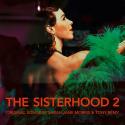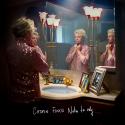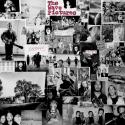Dublin’s Imelda May, who made her name as a superlative performer of high-energy rockabilly in a way that reflected the music’s partly Irish roots, has just released her first poetry recordings: nine punchy, moving, sometimes humourous and well-crafted spoken lyrics, mostly accompanied by subtle yet atmospheric strings.
She has a great voice, both sensual and strong. Here, the vocal textures and natural sense of rhythm and pacing serve her well. She had revealed her versatility on her previous album Life Love Flesh Blood (2017) where, in the inspiring hands of master producer T-Bone Burnett, she'd ventured into calmer and more reflective waters than in her first two celebrations of pure rock’n’roll. Here she goes one step further. She was always in command of words, but now they are centre-stage, and her talents as a poet, as well as a very present performer, makes for an outstanding new departure in which the intimate is tackled with an often touching mix of straightforwardness and sophistication
There's something both assertive and vulnerable in her material – a combination that expresses her essence. In “Becoming” she celebrates her strength and identity as a woman, “full of pain, full of joy”, a vibrant mix of opposites: “I am what I am and I’m good at that”. This is the confident woman who blew audiences away with remarkable showmanship and charisma. In “Roses”, she describes with clear-eyed authenticity the loneliness of the performer – there is “no afterglow after the aftershow”. As she says in the same poem: “I’ve lived every word I write”. “GBH”, delivered in a style close to rap, is a wry account of reliance on a vibrator for self-pleasuring – “grievous battery harm” – as well as an opportunity to decry a bad husband.
Anger aside, Imelda May is also familiar with the spiritual quest, albeit in a way that has little of the piousness that underscores Irish religion. Accompanied by entrancing drone-like strings, “Home” speaks beautifully of love – as with Sufi love, a combination of the erotic and the divine – daring to use words to speak of the unspeakable, the mystery that connects us all at a soul level.















Add comment